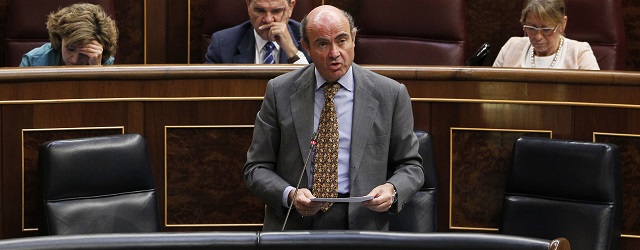A year after the risk premium on Spanish 10-year bonds over their German counterparts reached the frightening mark of 600 basis points, and it cost touched a historical maximum of 7.61%, the state of Spain’s public finances is perceived quite differently. The economy of the country, though, hasn’t improved in a substantial way.
Even if still high by core euro area standards, a 300bp spread seems reasonably afar from the edge, and Spanish long-term debt has had a good market demand–all offers have been completed and the Spanish Treasury has already cover more than 50% of its financing needs.
How did the tide turn? Today, investor confidence has recovered because the quality of the information is better.
When Spain fell under extreme tension and many market observers thought the government was already negotiating a bailout, the public debt rate or market access conditions weren’t exactly to blame. The reason for the turmoil was the confusing and troubled announcement that Bankia–Spain’s fourth largest bank–was about to collapse unless it was rescued by the government.
The news was sudden, and rumours and uncertainty quickly infected the picture of the whole banking industry. There was talk that capital needs could amount to €200 billion, and the logical reaction from investors was to abandon Spanish risk-linked assets amid a sense of almost terror.
After some audits and the publication of Bank of Spain data–admittedly, perhaps the whole process took too long–it is now clear that the toxicity was located only within the old savings banks, and that an package of €40 billion from the European rescue fund would suffice.
The current market stability is telling, in spite of the wobbly state of Spanish politics and how president Mariano Rajoy is constantly harassed by resignation demands, adding rumours of risk qualification downgrade. Investors are enjoying the 5% profitability that Spanish 10-year bonds offer.
Is there a lesson to be learnt here? Yes, and the word is communication, one of the saddest failures of European politicians in general, who should take note of the Federal Reserve governor Ben Bernanke’s skills.
In one of his latest public appearances, for instance, he mentioned that the US central bank could stop injecting money in the economy if there was an improvement. Investors were somehow shocked by this announcement and began selling US government debt. But then Bernanke had no hesitation to give further explanations, in a neat and easy-to-understand format, so his intentions about the Fed’s monetary policy would be upfront. As a result, market volatility receded in a week or so.
During the days that followed the Bankia rescue notice, everything done went in the opposite direction. The Spanish authorities remained oblivious of the panic investors were going through, and Brussels did nothing either to clear the matter. Incomprehensible declarations sparked even more anxiety.
Spain was about to step in the red zone of rescued countries without even really being in need of it. All people involved, from the government to the banking industry, should be aware of the mistakes they did and fix them.






Be the first to comment on "It’s the communication, people!"